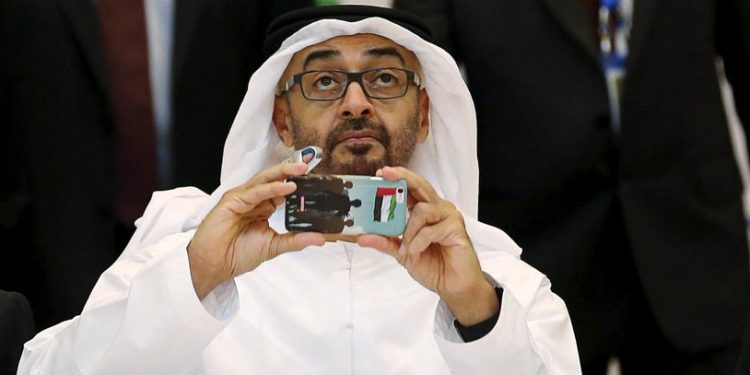Islamabad: UAE President Mohammed bin Zayed Al Nahyan, who is on a visit to Pakistan, has postponed his one-day trip to Islamabad due to “extreme weather conditions,” the Prime Minister’s Office announced Monday.
The leader of the oil-rich Gulf nation was scheduled to meet Pakistan Prime Minister Shehbaz Sharif here to discuss bilateral ties and broaden his country’s investment footprint in the cash-strapped country.
Islamabad’s sky was overcast with intermittent rains accompanied by gusty winds lashing it since Sunday night, which apparently made it impossible for the royal aircraft to land.
“Due to weather conditions, President Sheikh Mohamed bin Zayed Al Nahyan’s visit to the friendly Islamic Republic of Pakistan scheduled for today has been postponed to a later date,” according to the PMO statement.
The PMO said the visit would be rescheduled with new dates being announced soon.
Sharif said the “guest’s safety and protection were dearer to him and a risk could not be taken in extreme weather conditions”.
Prime Minister Sharif and members of the federal cabinet were poised to welcome the UAE President at the Pakistan Air Force’s Nur Khan Air Base Monday.
The UAE President arrived in Pakistan January 25 in Rahim Yar Khan in the country’s Punjab province for a private visit, during which he briefly met Sharif for talks.
On his arrival in Pakistan, Sheikh Nahyan hinted that his government was planning to broaden its investment footprint in cash-strapped Pakistan.
Earlier this month, Sharif travelled to the UAE to ramp up bilateral economic and trade ties, days after the country’s powerful Army chief General Asim Munir concluded his trip to the Gulf emirate.
Pakistan is facing the worst economic crisis as its reserves have dropped to a critical level of $3.7 billion and need urgent support to avoid default.
The IMF is the only forum that can save the country.
But many people wonder about the future of the country without any long-term planning in sight to tackle similar economic situations.
Pakistan secured a $6 billion IMF bailout in 2019.
It was topped up with another $1.1 billion in 2022 to help the country following the unprecedented floods.
But the global lender suspended disbursements in November last year due to Pakistan’s failure to make more progress on fiscal consolidation amidst political turmoil in the country.
PTI






































